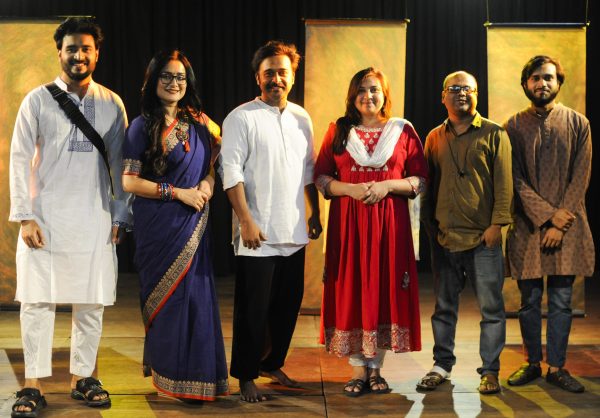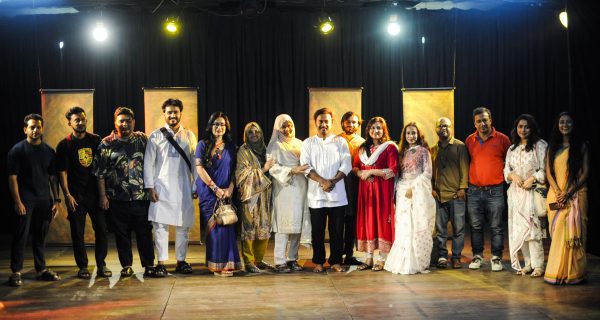Waiting For Godot
Waiting for Godot is a play where the meaning lies in the absence of meaning itself. It reflects the absurdity of human existence and the endless waiting for something undefined, uncertain—perhaps never to come. Through Vladimir and Estragon’s persistent anticipation of a man named Godot, the play presents a haunting metaphor for modern man’s existential anxiety and spiritual paralysis.
I did not intend to provide clear answers, messages, or morals. This play does not carry a message—it is the message. Let the audience draw meaning from their own experience, and allow the silence, repetition, and inaction to speak volumes about our condition.
“The play doesn’t mean anything more than what it shows.”
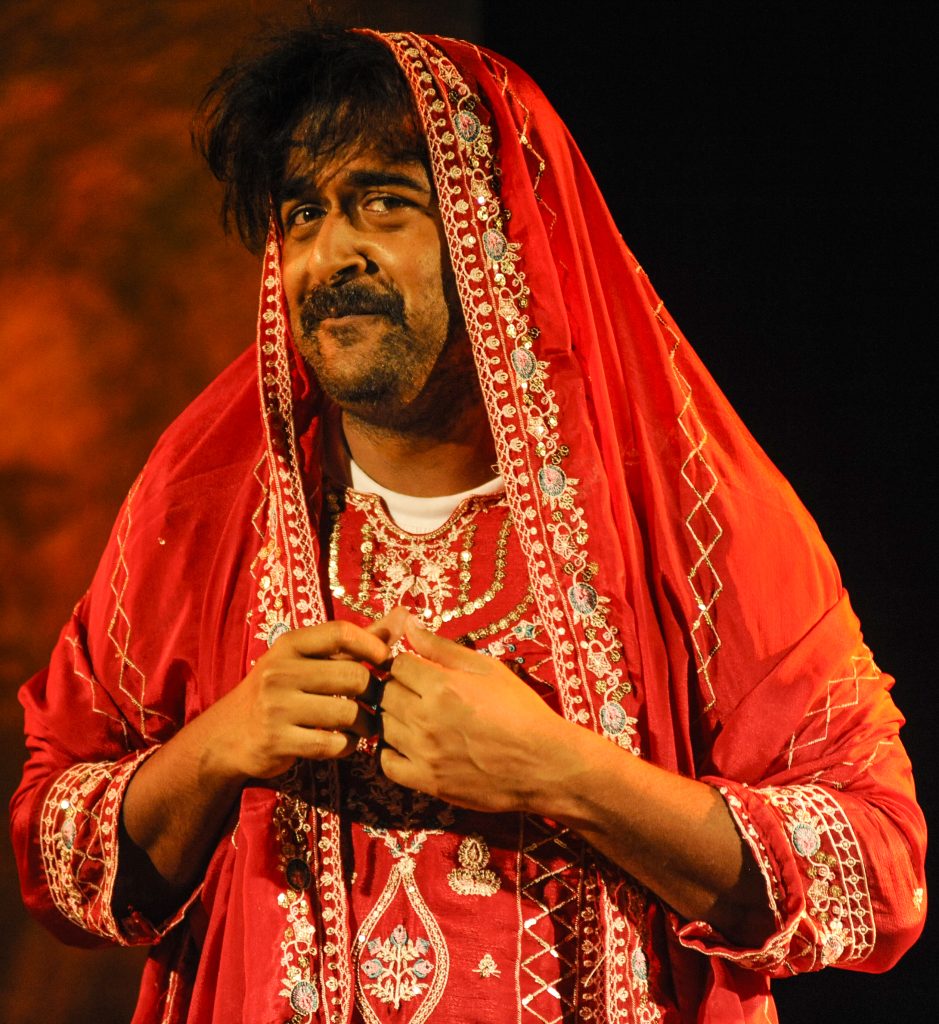
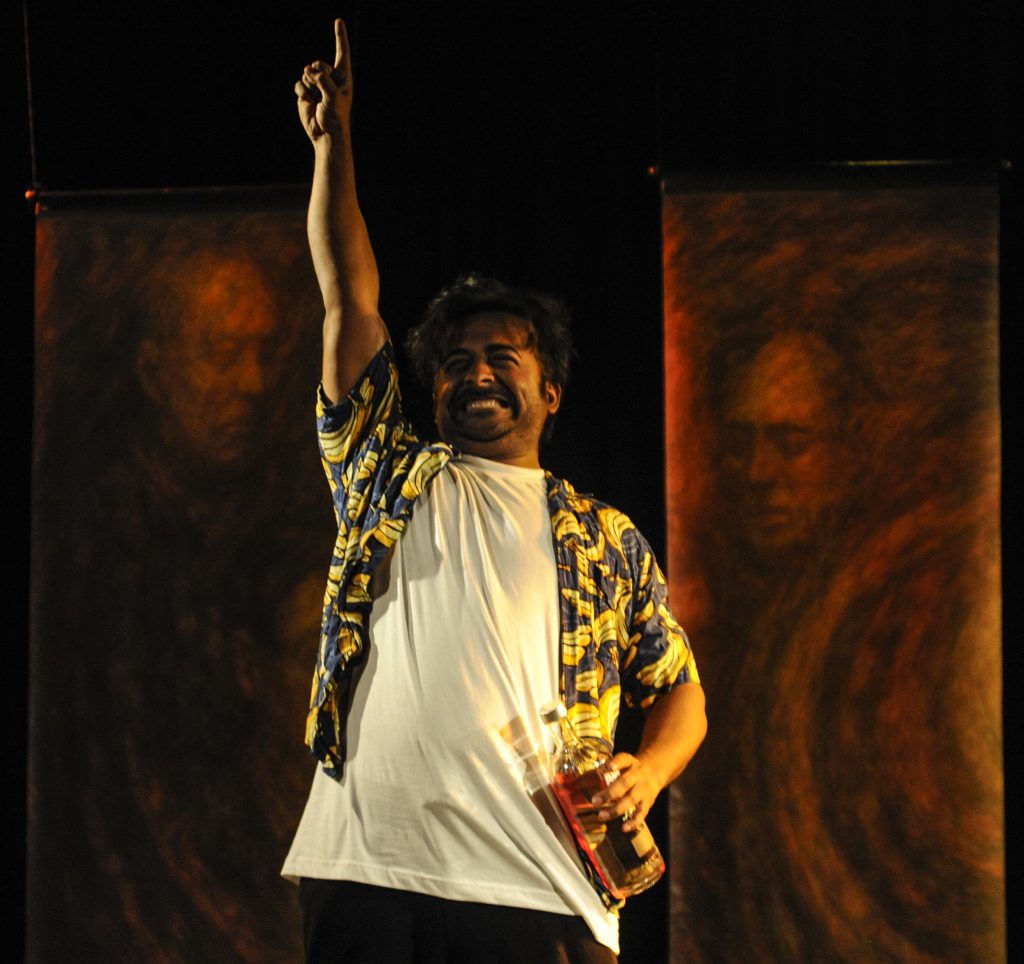
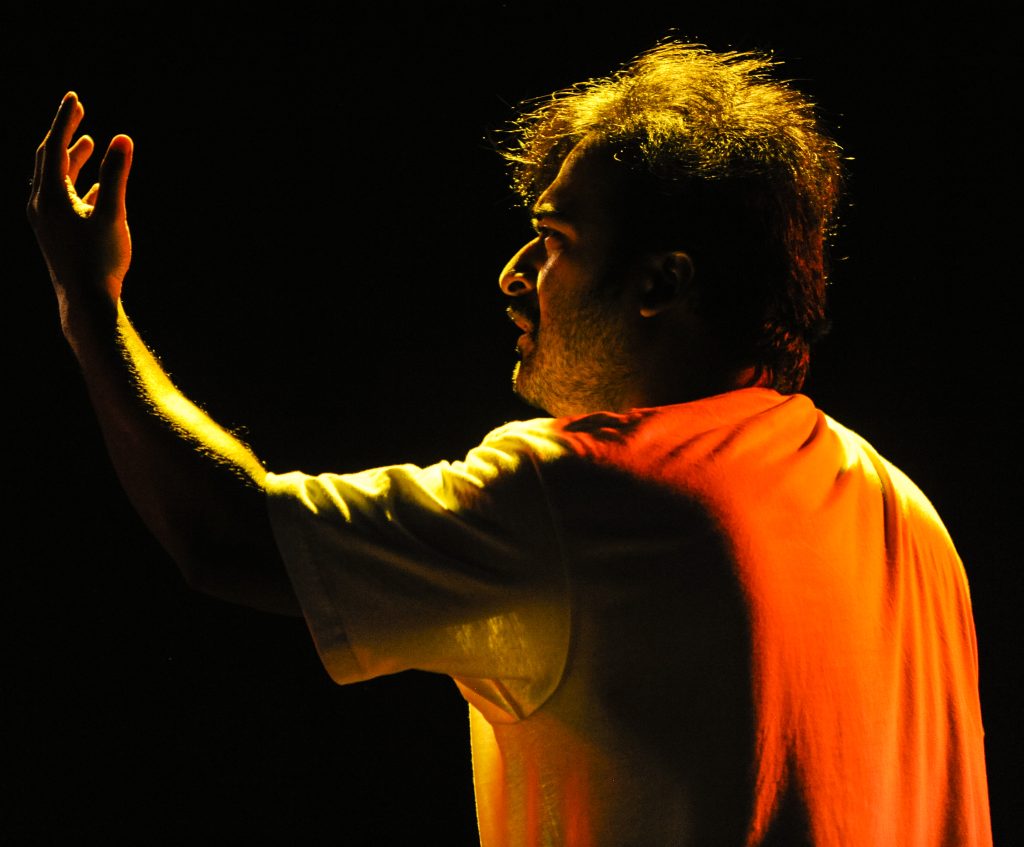
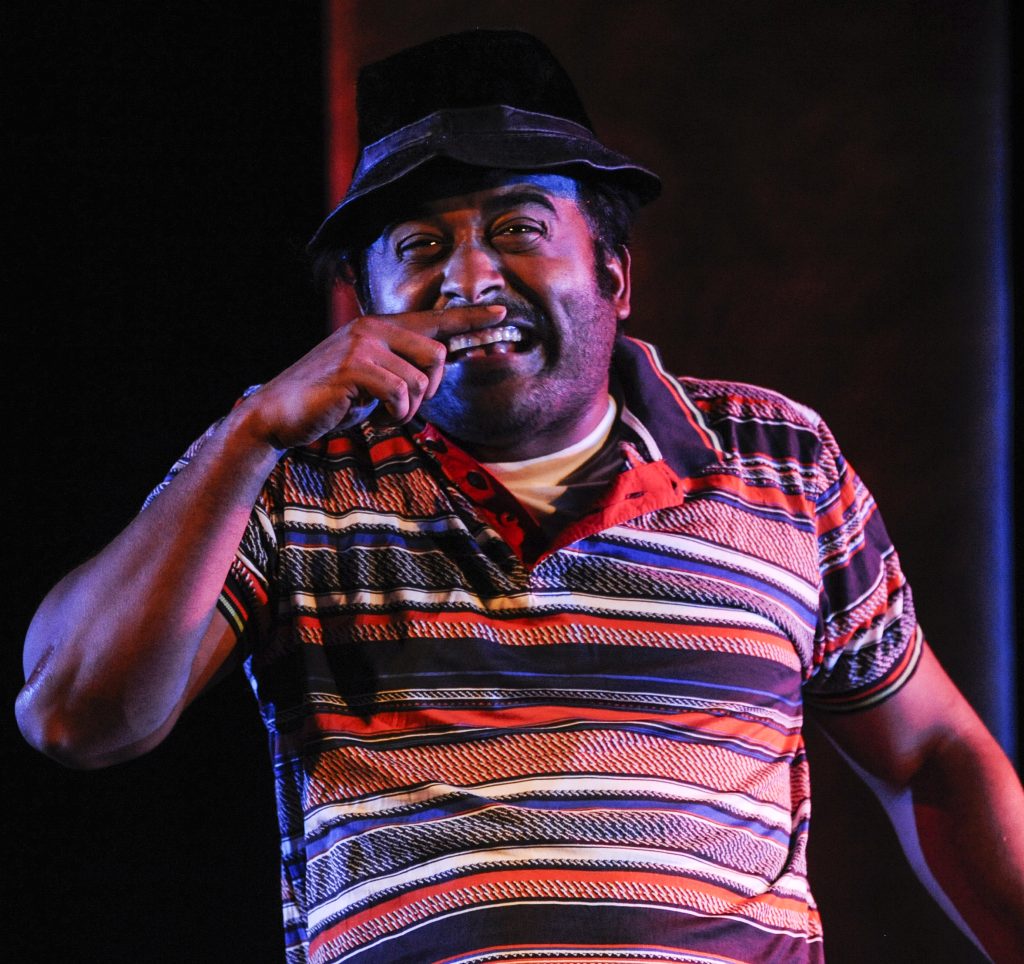
Kabir Choudhury
The play opens in a shabby bar run by Meena, where a group of emotionally damaged patrons gathers night after night to numb their pain with drink and denial. Rahul dreams of being a filmmaker, Tanu mourns the loss of her failed boutique, Shaan is a disillusioned ex-soldier, Rupa carries guilt over a past abortion, Ashik is a disgraced businessman, and Rajon seeks peace through honesty after a life of indulgence. Each holds onto a fragile illusion of identity.
Their routine is shattered when Iqbal enters the bar. He is calm yet unnerving, seeming to know the intimate secrets of everyone present. His mission becomes clear: to help each person remove their “mask” and face their truths. As layers peel back, old wounds resurface—love lost, betrayal, self-loathing, and the consequences of denial.
The turning point comes when Moni, Rahul’s former lover, returns, reigniting past emotions and unresolved regrets. Later, a nameless derelict claiming to be a former mayor dies in the bar, symbolizing the fatal cost of lifelong self-deception.
As dawn breaks, a sense of cleansing and rebirth emerges. The characters, once shattered, begin to take steps toward healing. Some seek redemption, others justice, and a few find the courage to live honestly. The bar, once a sanctuary of illusion, becomes a place of transformation
Director’s Note
From the Director – Rocky Khan
Why Waiting for Godot, and why now? Because we live in a time of constant waiting—waiting for justice, change, clarity, and connection. Beckett’s world of uncertainty, repetition, and silent yearning feels uncannily familiar to our present moment.
This play speaks to the invisible weight we carry every day—the pauses between action, the hope between disappointments. In directing this piece, I wanted to explore that space: the in-between, where nothing seems to happen, but everything truly does.
Let this production be a mirror—not of answers, but of recognition.
“In waiting, we often meet ourselves.”
